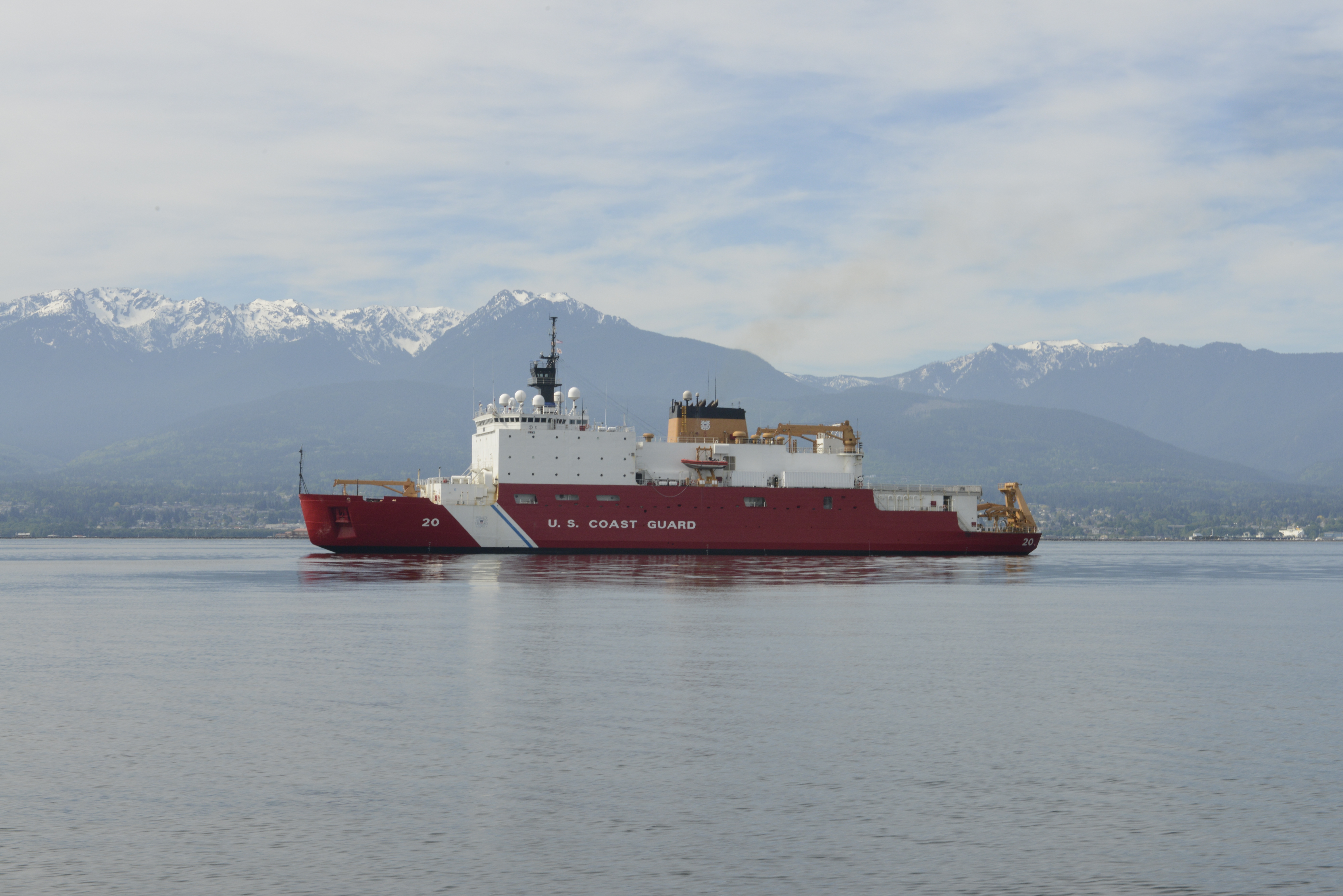
The Coast Guard commandant warned that his service’s presence in the Arctic may not be enough to ward off Chinese and Russian encroachment unless the U.S. signs the United Nations Convention on the Law of the Sea – and that even if the U.S. signed the treaty now, it might be too little, too late.
Adm. Paul Zukunft said a Chinese icebreaker – called MV Xue Long, or Snow Dragon – is headed to the Arctic now, towards what the United States considers its extended continental shelf. Under the Law of the Sea treaty, countries may declare a continental shelf that extends beyond the traditional 200-mile exclusive economic zone around its shores – but without being a signatory to the Law of the Sea convention, the U.S. claim to that extended continental shelf is at risk.
Despite not being a signatory, Zukunft said medium icebreaker USCGC Healy (WAGB-20) has been following UN protocols and mapping that shelf, which is about the size of Texas. In and under the sea floor, he said, are 13 percent of the world’s oil reserves, a third of the natural gas reserves, and a trillion dollars’ worth of rare earth minerals that cannot be accessed now but could be in the near future.
Despite U.S. attempts to shore up its claims to this territory, “the Snow Dragon, or otherwise known as the Xue Long, is on her way up to the Arctic from China, and they routinely stop and do research in our extended continental shelf – they’ve established a pattern there,” Zukunft said, speaking at an event co-hosted by the Center for Strategic and International Studies and the U.S. Naval Institute.
“So if and when we ratify the Law of the Sea Convention, I would expect those who have ratified will protest and say, well that’s part of the global commons, and we, China, have always operated there.”
The commandant noted extensive Russian claims in the Arctic as well, and said the U.S. would need both the convention’s laws on its side and the ability to defend its sovereign territory – and urged the passage of the treaty.
“Russia has claimed most of the Arctic Ocean, all the way up to the North Pole, as a signatory of the Law of the Sea Convention and has filed this claim. And obviously we’ve seen what’s happened in the east South China Sea – even though the UN tribunal found in favor of the Philippines, it has not altered the behavior of China in the east South China Sea. So it’s one thing if you ratify and it’s one thing if you have a ruling in your favor, but what you have is a piece of paper at the end of the day. If you don’t have the means to enforce this aspect of the law, then what you really have is nothing more than a paper dragon to counter a Snow Dragon.”
“I can’t state more profoundly the fact that we’re not in the best of company,” Zukunft said of countries that have not ratified the treaty. “It’s probably time for us to join the club and ratify.”
Zukunft is not alone expressing frustration with the Senate’s decades-long inaction. In July, Sen. Lisa Murkowski (R-Alaska) and Sen. Angus King (I-Maine) discussed at CSIS how not signing the 1982 treaty puts the U.S. at a disadvantage.
King called the Senate’s failure to ratify the pact, “a huge self-inflicted wound.” Not signing due to concerns about losing some American autonomy, King said, means the U.S. is not a part of global conversations deciding broad maritime issues.





